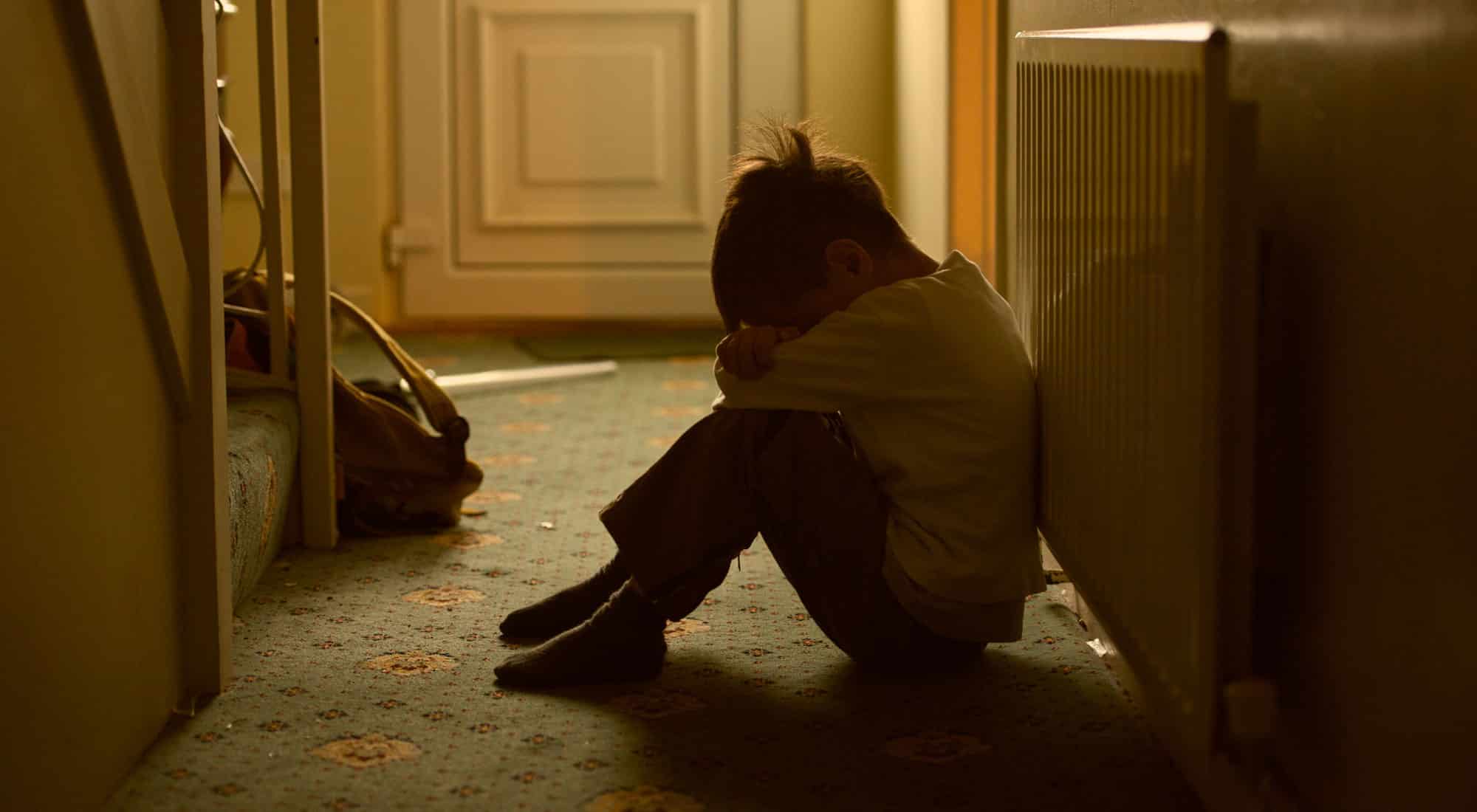Childhood sexual abuse (CSA) has the potential to transform the trajectory of your life in many ways. Its impact often extends far beyond childhood, carrying into adulthood and influencing emotional, mental, and physical health.
For survivors, the journey to healing is personal and often filled with challenges. Understanding these long-term effects can make a huge difference in how they navigate their recovery.
This blog post aims to help both survivors and their loved ones by shedding light on the hidden struggles that often come after abuse. By understanding the deeper long-term effects of sexual abuse, survivors can better understand how their trauma impacts them and finally begin to heal.

Five Types of Sexual Abuse
Sexual abuse is more than just physical. It can happen in ways that are harder to see, even though they’re still deeply harmful. Understanding the different forms of abuse helps us recognize the signs and better support those affected.
1. Verbal Abuse
This type of abuse is all about words. Even though there’s no physical contact, the impact is real. Abusers might make crude comments, jokes, or advances, often in a way that makes the child feel uncomfortable, disrespected, or powerless.
2. Covert Abuse
Covert abuse often hides in plain sight, taking place behind closed doors where it’s hard to see. The abuser uses emotional manipulation, subtle actions, or control to exploit the victim without them knowing it.
This could be a family member who slowly breaks down someone’s self-esteem with comments or actions that go unnoticed by others. It can also show up as secretly recording someone or watching them without consent.
3. Visual Abuse
Visual abuse is about crossing boundaries with images or videos. It can be just as damaging as physical acts, even though no one physically touches anyone. This could be sending unsolicited explicit content, forcing someone to watch something they don’t want to, or engaging in acts meant to be private in front of others.
4. Physical Abuse
Physical abuse is perhaps the most obvious form, where the child is touched or forced into sexual acts without consent. This can be everything from unwanted touching to sexual assault or worse. It’s an abuse of power and control, using physical force to break someone’s sense of safety and autonomy.
5. Ritualistic Abuse
Ritualistic abuse happens within groups or cult-like settings, where the victim is manipulated into believing the abuse is part of some greater spiritual experience. Whether it’s through nonconsensual sexual acts or other harmful rituals, these actions are hidden behind the guise of tradition or belief.

How Does Childhood Sexual Abuse Affect Adulthood
The effects of childhood sexual abuse can carry over into adulthood in ways that are often complex and deeply personal. Everyone reacts to trauma differently, and the impact can vary based on a person’s unique experiences, coping strategies, and available support.
For some, the trauma may be ongoing, resulting in what’s known as complex trauma, where the abuse is ongoing rather than one event, which can intensify the trauma’s impact.
It’s important to understand that these long-term effects aren’t signs of weakness, but part of the lasting consequences of trauma. These effects might include:
Mental Health Issues
The emotional impact of childhood abuse often leads to long-term mental health struggles that persist into adulthood, whether that abuse is physical, mental, or sexual. These issues can vary from person to person, but they are all tied to the trauma and its lasting effects on the mind.
Understanding these mental health challenges is a crucial step in offering support and finding healing. These issues can include:
- Depression: a deep sense of sadness, hopelessness, or emptiness, often tied to the shame or guilt of the abuse.
- Anxiety: heightened worry or fear, whether it’s about personal safety, relationships, or feeling out of control.
- Post-Traumatic Stress Disorder (PTSD): Flashbacks, nightmares, and constant fear of re-experiencing the trauma.
- Dissociation: feeling detached from reality or themselves, as if they’re watching their lives from the outside.
- Self-Esteem Issues: diminished sense of self-worth, making survivors feel undeserving of love, success, or happiness.
- Survivor’s Guilt: feeling guilty for surviving the abuse or feel responsible for what happened to them, even though they were never at fault.
Difficulty with Relationships
Trust is often broken in childhood sexual abuse, and rebuilding it as an adult can be incredibly difficult. Many survivors struggle with intimate relationships, whether it’s romantic partnerships, family dynamics, or friendships.
This difficulty might show up as fear of being vulnerable, problems with intimacy, or even an inability to let people get close. In some cases, people might find themselves repeating unhealthy relationship patterns, often without understanding why.
Emotional Regulation Problems
Survivors often experience emotional dysregulation, meaning it’s incredibly difficult to manage their feelings, even those that have seemingly nothing to do with their trauma. This leads to mood swings, irritability, or intense emotional responses to triggers.
The inability to control emotions can result in self-doubt and a feeling of being unable to control oneself. This can lead to difficulty in daily life and a sense of disconnect from others who may not understand what the person is going through.
Sexual Dysfunction
The trauma experienced in childhood can deeply affect a person’s ability to experience healthy sexuality as an adult. Survivors may face sexual dysfunction, such as difficulties with arousal, intimacy, or even sexual anxiety.
These struggles are often linked to the way the body and mind react to the trauma from childhood, which can make any sexual experience feel unsafe or uncomfortable. Healing from this can take time, as the mind and body need to reconnect in a safe and empowering way.
Self-Destructive Behaviors
Many survivors of childhood sexual abuse cope with their trauma through self-destructive behaviors. These actions often serve as a way to numb the pain, regain a sense of control, or escape overwhelming emotions.
However, these coping mechanisms rarely address the root cause of the trauma and can create additional challenges in life. Self-destructive behaviors can look like:
- Substance Abuse: Turning to drugs or alcohol to numb the emotional pain.
- Eating Disorders: Using disordered eating tactics as a way to cope with their negative feelings and regain a sense of control over their body.
- Risky Sexual Behavior: Engaging in unsafe sexual acts or having multiple partners.
- Self-Harm: physically harming themselves as a way to release emotional pain that can come from trauma.
- Isolation: Withdrawing from others to shield themselves from the emotional vulnerability of being close to others.
- Overworking: Throwing themselves into work or activities can serve as a distraction from painful memories or emotions.
Chronic Health Problems
The physical impact of childhood sexual abuse can also manifest in chronic health problems as an adult. The stress that the body undergoes during and after trauma can have long-lasting effects, such as chronic pain, gastrointestinal issues, or even autoimmune conditions.
The mind and body are connected in ways that science continues to explore, but it’s clear that the stress of abuse can take a significant toll on physical health, sometimes resulting in issues that last a lifetime.

Find Treatment for Sexual Trauma
As survivors begin to heal, it’s crucial to have unconditional and nonjudgmental support to guide them in their journey. At the Meadows, we provide trauma-informed treatment to help survivors address their emotional trauma and any harmful behaviors that stem from it.
Contact our admissions team today to find the right program for you or your loved one.
More FAQs On the Impact of Childhood Sexual Abuse
Here are some additional common questions and answers that may help better understand these effects and how they show up in adulthood.
What are the signs of childhood sexual abuse in adults?
Signs of childhood sexual abuse can show up in different ways for adults. Some of the most common signs include:
— History of self-destructive behaviors: Engaging in substance abuse or risky behaviors may be a coping mechanism to numb the emotional pain.
— Difficulty trusting others: Survivors may struggle to form close, trusting relationships due to past betrayals.
— Emotional numbness: Survivors may disconnect from their emotions to protect themselves from pain.
— Low self-esteem: Feelings of worthlessness or shame can linger long after the abuse.
— Anxiety or depression: Survivors often experience chronic sadness, worry, or fear due to unresolved trauma.
— Trouble with intimacy: Fear of vulnerability can make it difficult to form close, intimate relationships.
What are some personality traits of sexually abused adults?
Childhood sexual abuse can shape an adult’s personality in ways that may seem confusing or contradictory. Some traits that may develop include:
— Overly self-critical: Survivors may constantly feel like they are to blame for the abuse or believe they are undeserving of love or success.
— Difficulty expressing emotions: Survivors often suppress feelings to avoid vulnerability or protect themselves.
— Fear of vulnerability: A deep fear of being hurt again may cause survivors to shut themselves off emotionally from others.
— Heightened sensitivity to rejection: Survivors may take rejection harder than others, fearing it will lead to further trauma.
—Hyper independence: As a way to protect themselves, many survivors learn to rely solely on themselves.
Does sexual trauma ever go away?
While the emotional wounds from sexual trauma may never fully disappear, survivors can heal and find ways to live fulfilling lives. Healing often involves acknowledging the trauma, processing emotions, seeking support, and developing healthy coping strategies. With time and support, many survivors can build resilience and find peace, though the impact of trauma may still be present in some form.
What are coping skills for sexually abused people?
Coping skills can help survivors of sexual abuse manage emotional pain and heal from their trauma. Effective coping skills include:
— Engaging in creative outlets: Creative activities like art or music can be therapeutic for expressing emotions.
— Mindfulness: Practicing mindfulness helps survivors stay grounded and in the present moment.
— Therapy: Working with a therapist, especially one trained in trauma, provides a safe space for healing.
— Journaling: Writing down feelings can help process emotions and reflect on personal growth.
— Setting boundaries: Learning to set and maintain healthy boundaries is crucial for emotional safety.
— Building a support network: Surrounding oneself with trusted individuals can help reduce isolation and offer comfort.
What is the role of gender in sexual trauma?
Gender plays a key role in how sexual trauma is experienced and addressed. Research shows that male survivors of childhood sexual abuse are less likely to report their trauma, largely due to societal stigma that associates abuse mainly with women.
This can lead to feelings of shame, causing many men to remain silent about their experiences. Instead of internalizing their pain, male survivors often externalize it through compulsive sexual behaviors, such as risky sexual encounters or excessive pornography use.
These actions can offer temporary relief but don’t address the underlying trauma. Societal expectations of masculinity — like being strong and stoic — reinforce this tendency to bottle up emotions. This creates a cycle of silence and unhealthy coping, making it harder for male survivors to seek help.
More support and understanding are needed to break these patterns and provide healing opportunities for all survivors, regardless of gender.

